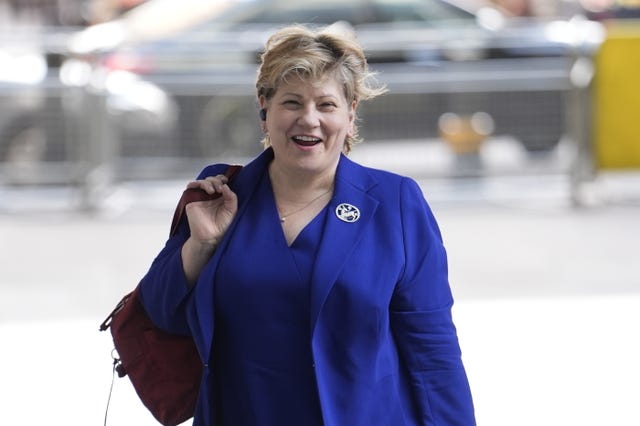MPs warn ‘secretive’ approach may have harmed EU ‘reset’ efforts
The Commons Foreign Affairs Committee said public backing for closer relations with the EU mean the Government has to be ‘bold in its offer’.

The Government’s “secretive” approach to negotiations with the EU may have harmed efforts to “reset” relations with the bloc, a cross-party group of MPs has warned.
In a letter to Sir Keir Starmer, the Commons Foreign Affairs Committee said public support for closer relations with Europe meant the Government had space to be “bold in its offer to the EU” in order to “maximise benefits” from the negotiations.
But they warned that attempts to reset relations with Brussels were being hampered by a “perceived absence of a strategic vision” and a lack of interest from EU member states.
The letter comes as Sir Keir prepares to host the first UK-EU summit on Monday, where he hopes to make significant progress on his policy of a “reset”.
Since coming to power last year, the Prime Minister has sought to avoid what he described as “megaphone diplomacy” with the EU, with ministers insisting they would not provide a “running commentary” on negotiations to improve relations with the bloc.

But the Foreign Affairs Committee suggested the lack of a “pitch” or “compelling political narrative” had left those outside Westminster “unclear” about British policy and unconvinced of the “strategic importance” of making the rest a success.
The committee said: “We are concerned that such a piecemeal and secretive approach to these EU negotiations not only complicates public and parliamentary scrutiny of the reset, but could also negatively affect the impact, stability and durability of its outcome.”
Urging the Government to be bolder, committee chairwoman Dame Emily Thornberry said: “We should be clear about what it is that we want and act with a little less caution and a lot more confidence. If we do this, there is every reason to believe the EU will respond positively.”
Ahead of Monday’s summit, Sir Keir said the meeting would be “another step forwards”, providing “yet more benefits for the United Kingdom”.
And in an interview with The Times he gave his clearest signal yet that he would be open to a youth mobility scheme with the EU, saying such a deal “is not freedom of movement”.
The EU has pushed for a youth mobility scheme, similar to existing arrangements between the UK and countries including Australia and Canada, and the concession could be used to secure British access to a major European defence fund.
Although the Government appears to be coming round to the idea, ministers have previously insisted that there are “no plans” for such an arrangement – comments the Foreign Affairs Committee suggested had “lost the UK goodwill on the EU side”.
Dame Emily added that her cross-party committee would support a youth mobility scheme, saying it “could deliver opportunity for young people across Europe”.





